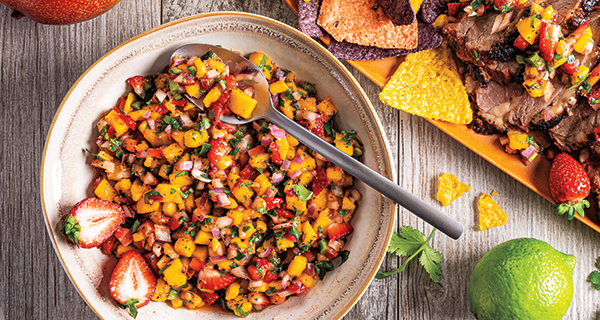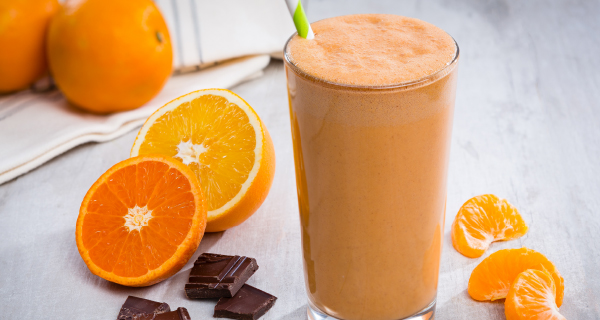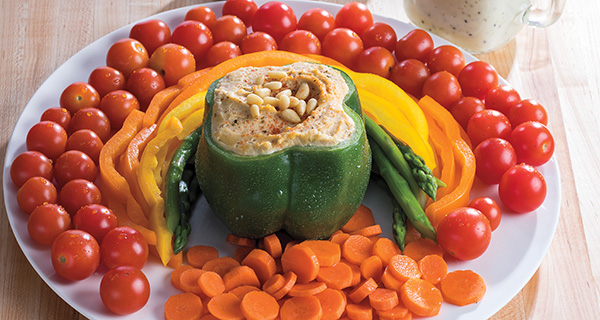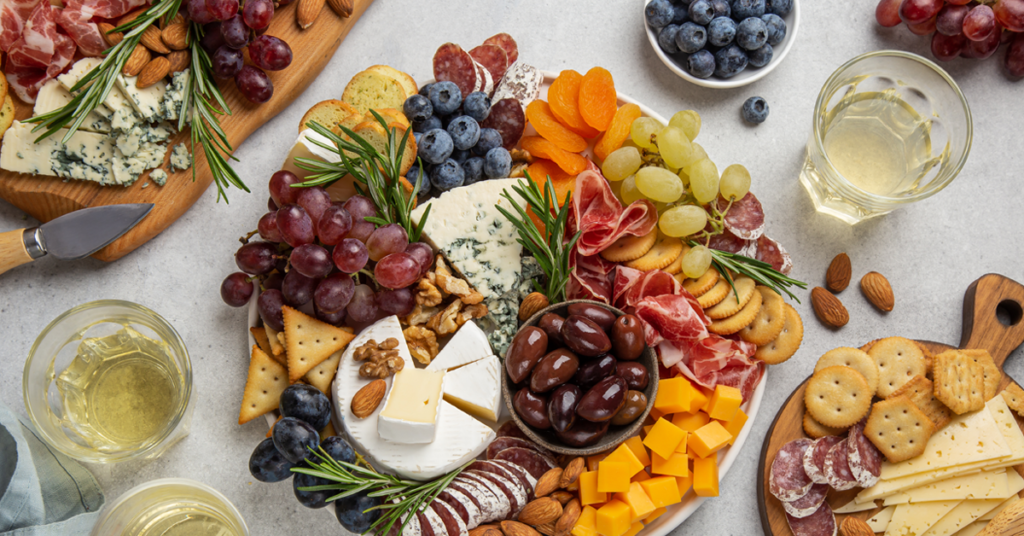
Create the Perfect Charcuterie Board!
Mia Teal
Marketing Coordinator, Paid Media
What is better for snacking than a big, beautiful charcuterie board? Whether you are having a friend and family gathering, holiday party, or some sort of celebration, a charcuterie board is a great option. The best part is, there is no “right” or “wrong” way to create one, and you can theme the board to match the occasion.
What exactly is a charcuterie board? A charcuterie board typically contains some type of assortment of the following: Meats, cheeses, crackers, artisan toasted bread, fruits, veggies, olives, nuts, dips, desserts and whatever else you choose! Of course, you tailor your board to what you and your guests prefer. Additionally, with the holidays right around the corner, there are many fun desserts you can sprinkle onto your board.
Unsure of where to begin? We have you covered. The volume of items you need depend on how many guests you are providing for. Here are a few popular items for each category:
Meats: Prosciutto, salami, pepperoni, ham, smoked salmon
Cheeses: Goat cheese, Feta cheese, Swiss cheese, blue cheese, Brie Cheese
Crackers: PICS Oil & Herb Crackers, Wheat Thins, Ritz Crackers, pretzels
Artisan Bread: Ciabatta, sourdough, French, rye
Fruits: Grapes, blueberries, raspberries, apricots, figs
Veggies: Carrots, celery, snap peas, grape tomatoes, broccoli, pickles
Olives: Castelvetrano olives, Kalamata olives
Nuts: Walnuts, almonds, cashews, pistachios, pecans
Dips: Hummus, cream cheese, salsa, guacamole, honey, fig spread
Desserts (for holidays or any occasion): Chocolate covered strawberries, jellybeans, mints, candy corn, Hershey kisses, mini cookies, mini candy canes, peppermint bark, M&Ms
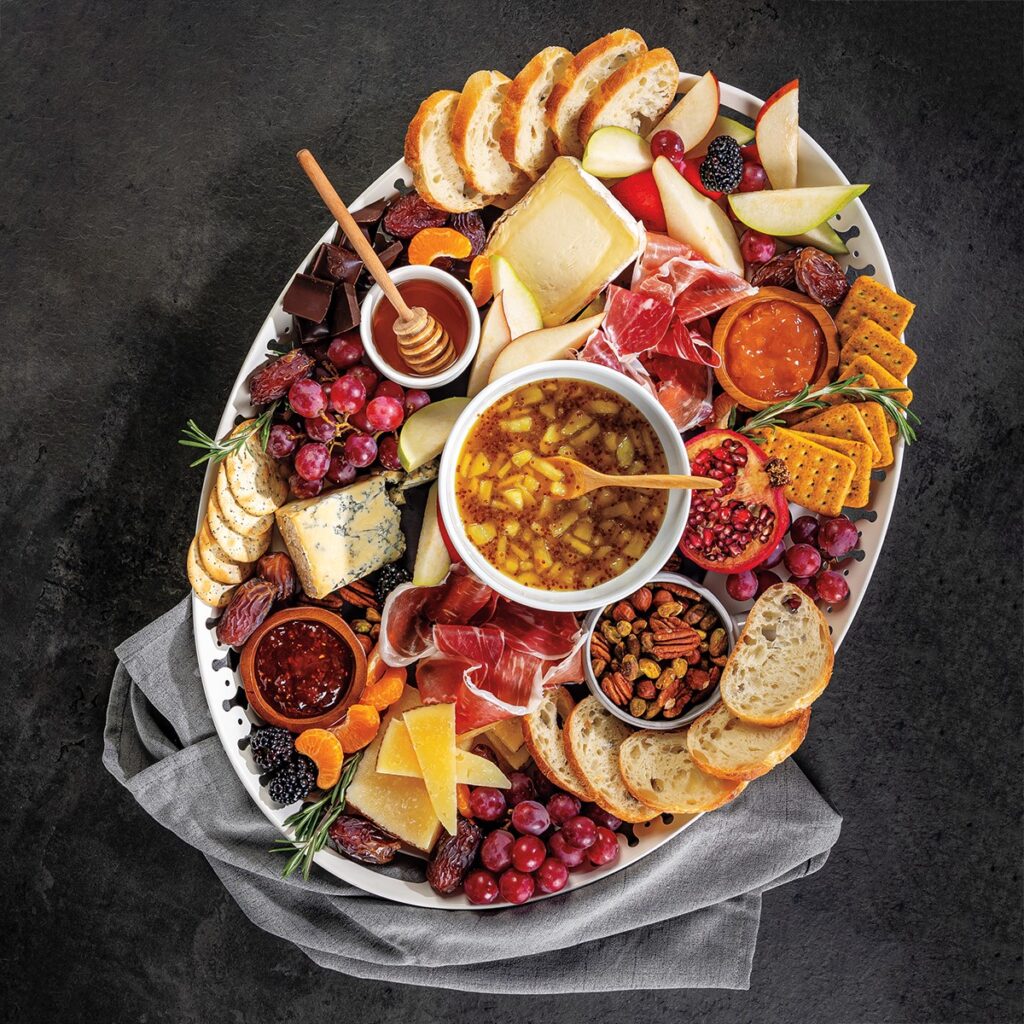
Charcuterie boards are a fun way to let your creative mind flow, as well as giving your guests something to admire. Enjoy!

We cannot be more excited for this week’s meals! We are serving three dishes that are a fresh change from what we have offered before. With school right around the corner, we understand that time is more valuable than ever, which is why each meal is designed to be quick and efficient. Let’s see what’s on the menu…
Chopped Cheese (Sandwiches)
Market 32 85% Ground Beef
PICS Cheese Slices
Onions
Market 32 Hoagie Rolls
Pantry: PICS Ketchup, PICS Mayo, PICS Olive Oil
Shop ingredients here!
Brown Sugar BBQ Chicken Sandwiches
Market 32 Boneless, Skinless Chicken Breast
PICS Hickory & Brown Sugar BBQ Sauce
PICS Cheese Slices
Dole Salad Blends
PICS Dressing
Local Veggies (in flyer)
Shop ingredients here!
Hibachi Chicken Bowl
Boneless, Skinless Chicken Breast
PICS Instant Rice Box
PICS Lite Soy Sauce
Local Veggies (in flyer)
Shop ingredients here!
Check out this Full Circle Teriyaki Chicken Bowl with Rice & Broccoli!
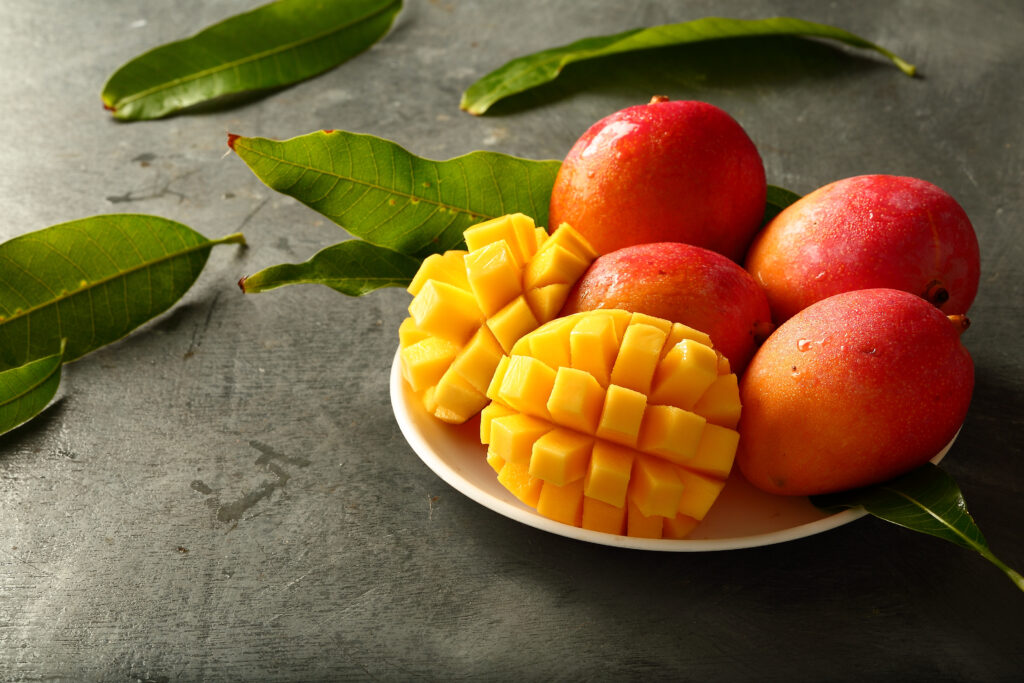
Mia Teal
Marketing Coordinator, Paid Media
We are celebrating mangoes all July long, and today, July 22nd, we’re kicking it up a notch for National Mango Day! We’re so excited to share our passion for this versatile fruit with you. From enjoying mangoes in their natural state to crafting smoothies or baking sweet treats, we’ll teach you how to select the best mangoes, cut them properly, and more!
How to Choose a Mango:
Unlike other fruits, color is not always the best indicator of a mango’s ripeness. Believe it or not, mangoes come in a variety of shapes and colors. In order to discover if a mango is ready to eat, give it a gentle squeeze. An unripe mango will be firm, whereas a ripe mango will be a little soft.
However, mangoes can be enjoyed at all different stages of life depending on preference. The flavors vary from sour-tart to sweet.
How to Cut a Mango:
Step 1: Choose your mango, of course!
Step 2: Rinse off the mango.
Step 3: Place the mango on a cutting board with the stem end facing up.
Step 4: Cut down along the flat sides of the mango, starting just off-center to avoid the large seed in the middle.
Step 5: Slice from top to bottom on both sides of the seed.
Step 6: Using a knife, make vertical and horizontal cuts in the flesh, creating a grid pattern. Be careful not to cut through the skin.
Step 7: Use a knife or a spoon to remove the mango from the skin.
Step 8: ENJOY!
Mango Recipes:
Source:
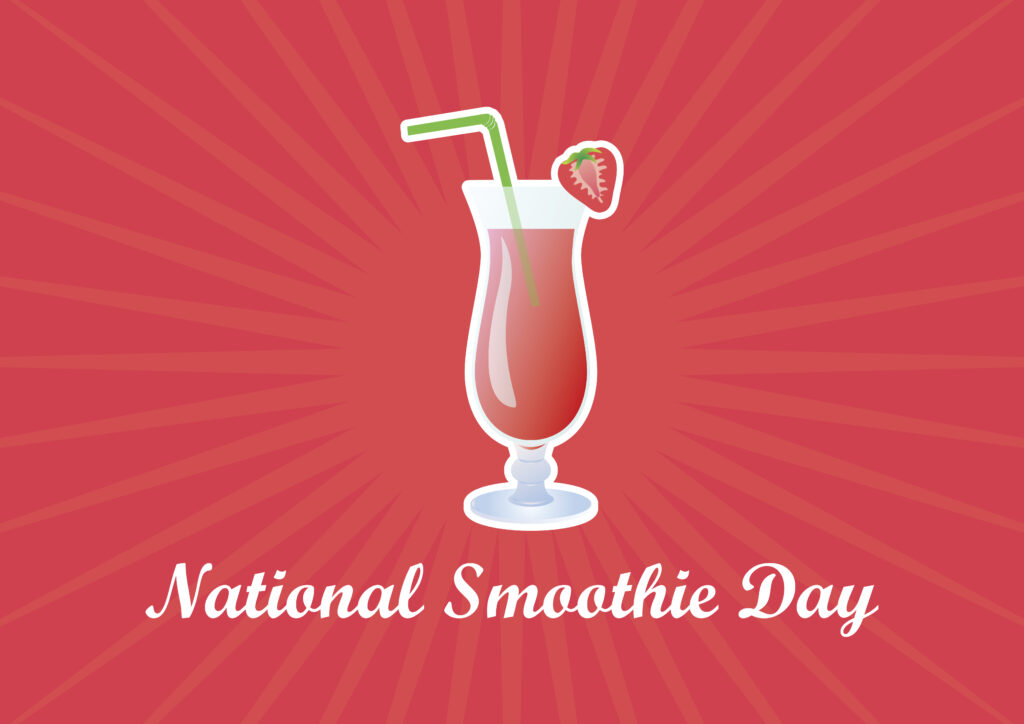
Mia Teal
Marketing Coordinator, Paid Media
June 21st is National Smoothie Day, the perfect occasion to blend up some delicious and nutritious smoothies! Whether you’re a fan of fruity, creamy, or green smoothies, or even a hearty smoothie bowl, there’s a recipe out there for everyone. Let’s explore some delightful smoothie recipes & helpful tips that will make your celebration truly refreshing.
Tips for the Perfect Smoothie
- Balance Your Ingredients: Aim for a mix of fruits, vegetables, protein, to create a well-rounded smoothie.
- Freeze Your Fruits: Using frozen fruits can help create a thicker, creamier texture without the need for ice.
- Sweeten Naturally: Opt for natural sweeteners like honey, agave syrup, or dates.
- Experiment with Liquids: Try different liquids like coconut water, almond milk, or oat milk.
- Don’t Overdo It: Keep an eye on portion sizes and the amount of sweeteners to maintain a balance.
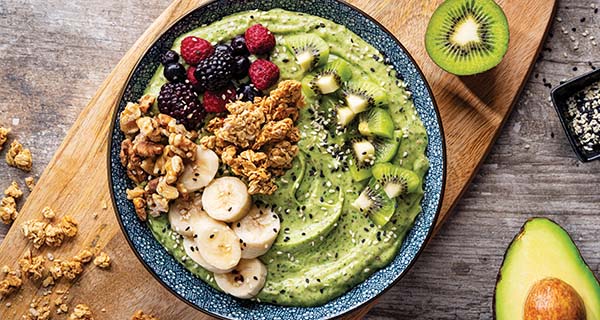
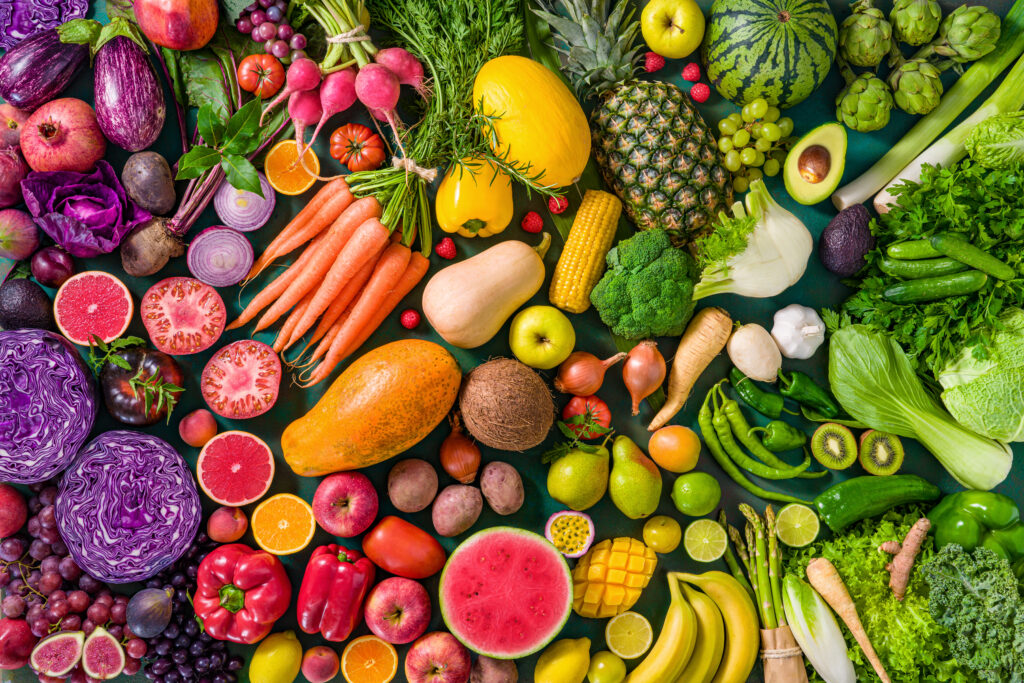
Mia Teal
Marketing Coordinator, Paid Media
‘Tis the season for fresh veggies! June 16th is a date to mark on your calendar with a splash of color and a burst of flavor—it’s National Veggies Day! This vibrant day isn’t just about eating more of this food group; it’s about embracing the joy and creativity that vegetables bring to our lives. From their stunning colors and intriguing shapes to their endless culinary possibilities, veggies offer a feast for the senses. Here’s how you can celebrate this delightful day with enthusiasm and creativity.
- Create a Rainbow Platter: Assemble a colorful platter of fruits and vegetables. Think red bell peppers, orange slices, yellow corn, green cucumbers, blue blueberries, and purple grapes. This not only looks stunning but also adds a festive touch to your dining table.
- Food Photography: If you’re into photography, fruits and vegetables make excellent subjects. Their vibrant colors and unique textures can inspire beautiful food photography.
- Fruit and/or Veggie Infused Water: Enhance your hydration with fruit or veggie-infused water. Add slices of lemon, cucumber, strawberries, or mint leaves to your water pitcher. It’s a simple yet refreshing way to enjoy the essence of fruits throughout the day.
- Try a new recipe: Incorporating more veggies into your diet does not have to be a hassle. This can be as simple as tossing in some chopped up veggies in your rice. Check out some summertime recipe ideas below!
Check out more recipes here:
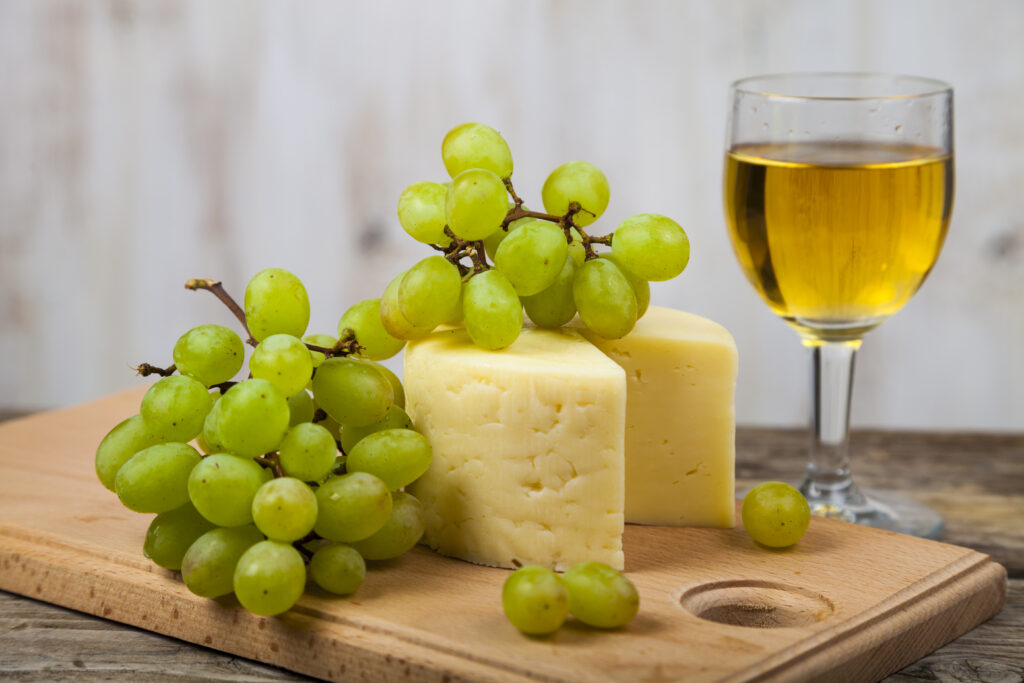
Haleigh Eustis
Intern, Digital Marketing
Aprils showers might bring May flowers, but what about cheese? This April, Price Chopper/Market 32 is proud to announce our cheese of the month: Sartori’s Bellavitano Cheese! This creamy, rich textured cheese comes from the great state of Wisconsin. Bellavitano is a unique hard cheese that has an irresistible nutty, fruity base flavor with a tangy finish. Bellavitano comes in a variety of different flavors to accompany its parmesan like flavor.
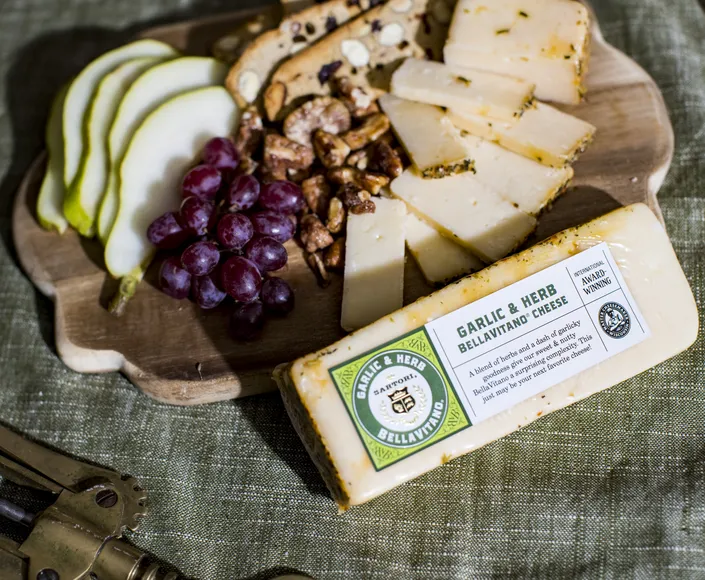
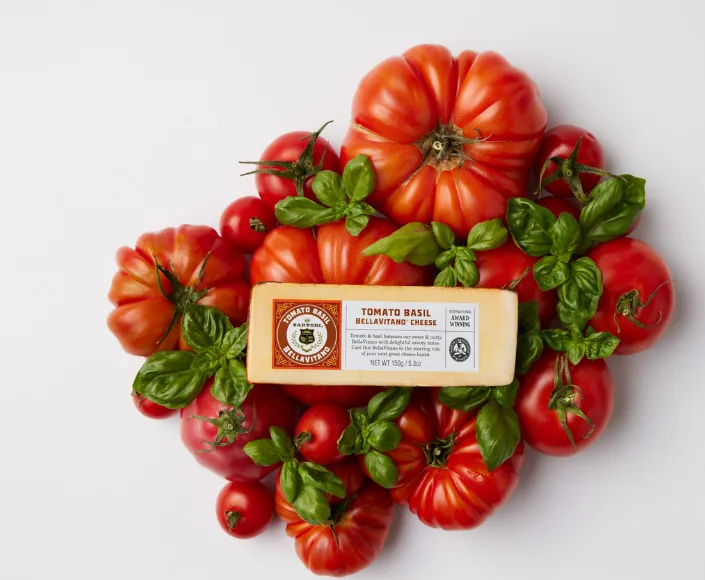
Sartori’s Bellavitano Cheese is the perfect cheese for a charcuterie board as its robust flavors and crunchy calcium lactate crystals pair well with fresh fruits such as apples and grapes. Want to add something savory as well? Bellavitano pairs perfectly with plenty of cured meats and delicious crusty bread such as baguettes! Pair this cheese with a Pinot Noir or a light raspberry ale and enjoy!

Ellie Wilson
MS, RDN, CDN
Eye health is an often-overlooked issue (no pun intended) until something happens to impact or change vision. Loss of vision is a substantial health challenge with significant impacts on quality of life, and the most common diseases have a long, slow development timeline, leaving many not realizing they are headed for vision issues. Nutrition has been a target for research and consumer interest in this field. Research shows some important nutrient roles in maximizing vision functions, but connecting specific nutrients to specific roles in prevention and management of vision issues has been more challenging than expected.
The good news is that we can connect recommendations for eating more produce, managing blood pressure and blood sugar, and enjoying foods that are part of a Mediterranean style of eating to reduced likelihood of chronic vision challenges such as cataracts, macular degeneration, or glaucoma. There is a significant linkage between ensuring heart and artery health is maintained, because all nutrients that have a relationship with protecting vision also need to reach those tissues via a strong cardiovascular system.
Orange flags produce that offers significant amounts of Vitamin A, essential to ensuring eyes can see light and color – carrots, sweet potatoes, cantaloupe, and apricots are on the menu for this critical nutrient. Vitamin A also protects against dry eye and has a role in the quality of tears. Antioxidant Vitamin C, found in red peppers, oranges, strawberries, and more, has been correlated with prevention or delay of macular degeneration.
Vitamin D and omega-3 fatty acids also have roles in eye health, along with bioactive compounds lutein and zeaxanthin. Lutein and zeaxanthin are found in leafy greens, tomatoes and eggs, and are critical to the health of the macula, which is the center of vision function in the eyes. Most of these vitamins and compounds are fat-soluble, meaning they need some healthy fats in food to be absorbed well, which opens the door for delicious foods like avocado, nuts, seafood and olive oil – hopefully, they were all on your grocery list already!
Supplements also have some supportive data and are most beneficial for those with macular degeneration or at risk for it. The Age-Related Eye Disease Study 2 found supplements with specific amounts of the vitamins highlighted have positive benefits when used in conjunction with recommendations from your health care provider. Learn more about that here Vitamins for AMD – American Academy of Ophthalmology (aao.org).
Bottom line – plant-forward, nutrient-rich foods are important to eye and overall health throughout your life. Enjoy them as part of your vision of a healthy future!
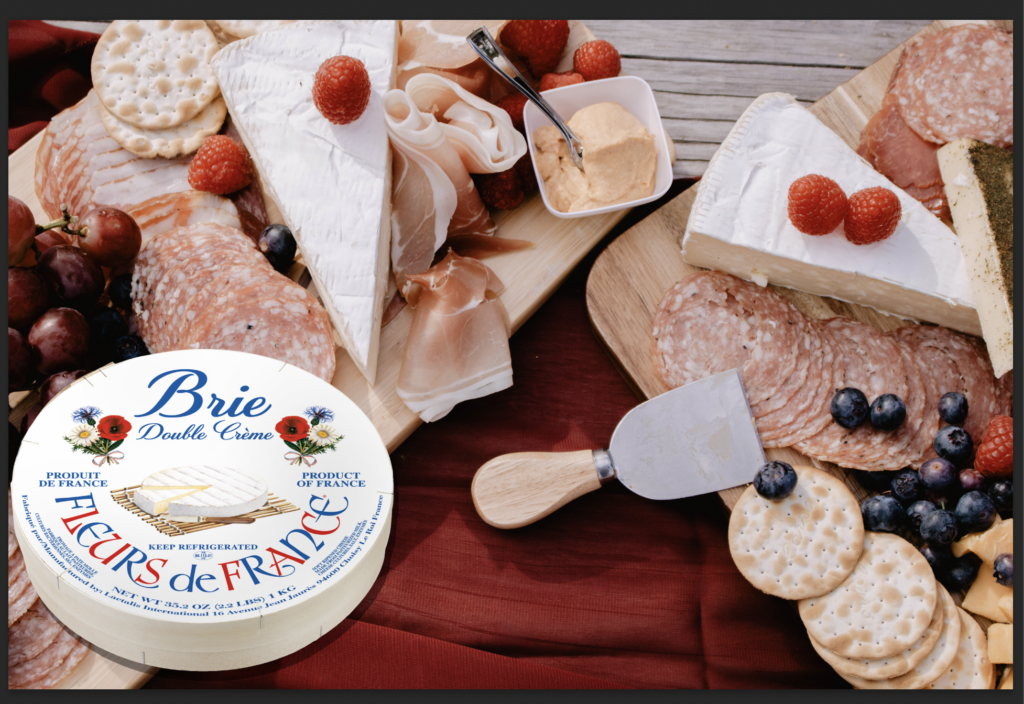
Price Chopper and Market 32 are so excited to feature Fleur de France Brie Cheese as October’s Cheese of the Month. Let’s dive into this delicious cheese and see what it is all about!
As the name implies, this cheese originates from France and is made with pasteurized rBST-free cow’s milk. The taste is like no other; It has a soft interior like butter with an edible rind. If you have never had this cheese, you need to stop what you are doing and try!
You may be wondering what this cheese pairs well with. Take a look at the list below and browse our selection at the end!
- Fruits
- Nuts
- Honey
- Balsamic Glaze
- Prosciutto
- Pepperoni
- Marinated Artichokes
- Roasted Red Tomatoes
- Hot & Sweet Peppers
- Marinated Artichokes
- Champagne
- Sparkling wine
- Saisons
- Pilsners
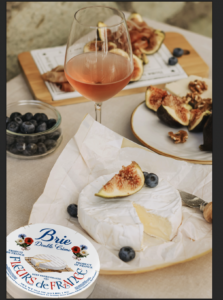
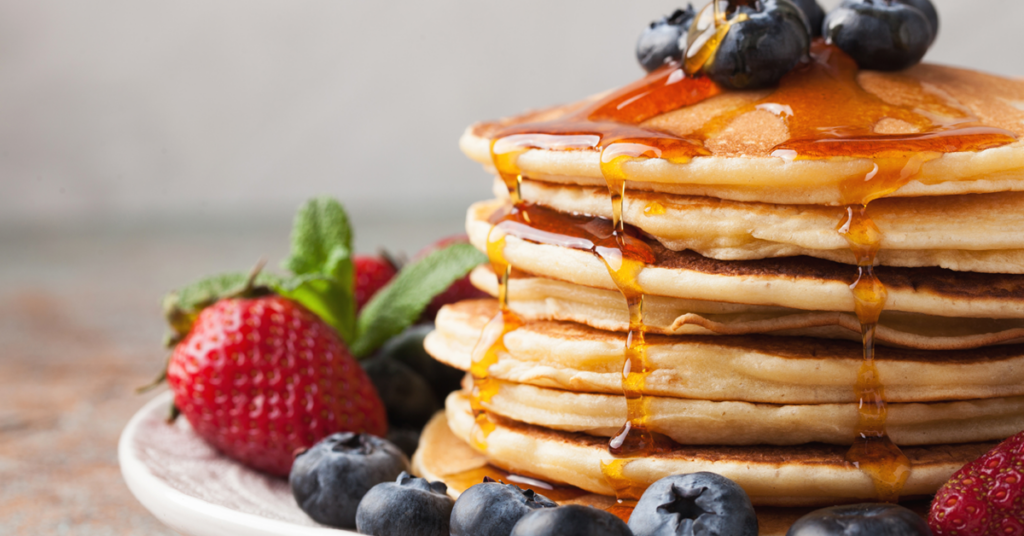
Mia Teal
Marketing Coordinator, Paid Media
Happy National Pancake Day to all our pancake lovers out there! From buttermilk to candy-filled pancakes, each pancake is unique. National Pancake Day is a time to indulge in this beloved breakfast delight and celebrate the joy it brings to people of all ages. Fire up the griddle and let’s get cookin’!
Explore some fun pancake add-ins & add-ons you can try!
Fruit: Plump blueberries, juicy strawberries, or sweet bananas allow for a fruity twist to your morning!
Candy: We all know chocolate chip pancakes are a classic, but what about M&Ms, caramel, hershey syrup, or even cereal? Oh, and you cannot forget to add PICS Whipped Topping!
Nuts: Walnuts, hazelnuts, or even slivered almonds allow for a delicious crunch and extra flavor in your flapjack.
Spreads: Drizzled nutella, peanut butter, almond butter, jam, and jelly are great additions to add in or on your stack of pancakes.
Spices: The fall is a perfect time of the year to explore different spices in your pancakes, like cinnamon, pumpkin, gingerbread and nutmeg.
Still in need of some ideas? Don’t worry, we have you covered. Check out some of our recipes below, and be sure to browse our pancake selection!
Pumpkin Spice Pancakes: Calling all pumpkin-spice lovers out there! Pair these pancakes with our PICS Pumpkin Spice Coffee and thank us later.
Buttermilk Pancakes with Bourbon-Maple Syrup: This recipe takes a twist on your traditional buttermilk pancakes. Be sure to pick up PICS Bacon the next time you shop with us!
Gingerbread Pancakes with Cranberry-Maple Syrup: Remember when we said gingerbread is a good spice idea for pancakes? Yeah, this recipe is why! You will not be disappointed.
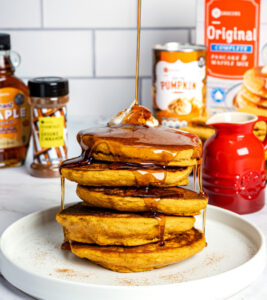
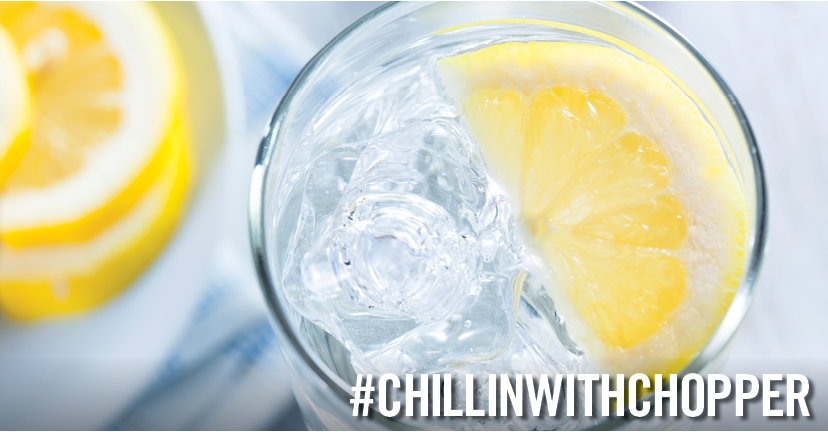
Ellie Wilson
MS, RDN, CDN
Hydration is always a “hot” topic in the summertime – it is an essential element to staying well and at being at our best, whatever the season. Here are some tips and hacks to ensure you and yours are hydrated and happy!
Why is it essential? Every cell in the body, all our tissues and organs, and most of our functions, like blood pumping, breathing, moving and sweating – all require water. In fact, our body is 50 – 70% water. Water also supports brain function, skin health, and waste removal – all critical body systems are impacted by hydration.
To ensure we can maintain those systems, our body can extract water from many foods – humans get about 20% of their water intake from foods, including produce, proteins, and dairy. See the chart below for some high-water content produce – all of their energy and antioxidant benefits and water to support absorption – win win!
Each age and stage of life has a recommended range for the types and quantities of beverages that can support healthy hydration. You can find information about children’s needs here: Choose Water for Healthy Hydration – HealthyChildren.org. Keeping water handy and encouraging them to sip frequently will help them stay hydrated and build a good habit for health. Older adults may be at risk for dehydration and not realize it – lower activity or reduced awareness of thirst can set up a domino effect that can impact balance, memory, and chronic health issues. Learn about the signs, symptoms, and treatments for dehydration at the National Library of Medicine resource page: https://medlineplus.gov/dehydration.html.
Enjoy more of these great produce picks as part of your hydration plan – many are in season right now!
High Water Content Fruits
Watermelon and strawberries contain about 92 percent water per volume. Other fruits with high water content include grapefruit with 91 percent, cantaloupe with 90 percent and peaches with 88 percent water. Fruits containing 87 percent water by weight include pineapple, cranberries, orange and raspberries. Apricots hold 86 percent water, while blueberries and plums contain 85 percent water. The water content for apples and pears is 84 percent. Cherries and grapes contain an average of 81 percent water.
High Water Content Vegetables
On top of the vegetables list are cucumber and lettuce, consisting of 96 percent water. Zucchini, radish and celery are comprised of 95 percent water. Ninety-four percent of tomato’s weight is water, and green cabbage is 93 percent water. Vegetables that contain 92 percent water include cauliflower, eggplant, red cabbage, peppers and spinach. Broccoli is 91 percent water by weight. Additional healthy hydrating foods include carrots with 87 percent water and green peas and white potatoes with 79 percent water.



